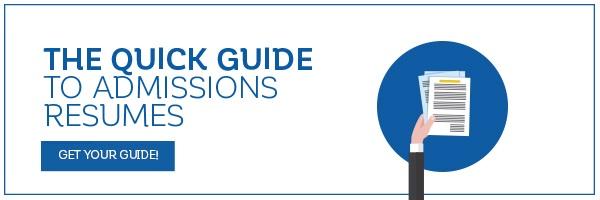 Read Time:2 minutes
Read Time:2 minutes

When you are requesting letters of recommendation, there are a few strategies you can use to make sure you receive excellent letters of recommendation.
1. Start by determining whom you will ask for letters.
Being strategic in selecting who knows you best and can write most positively about your work is the most important part of the process. For example, even though that Anthropology professor became a great mentor, if you only earned a B or C in the class, then you probably shouldn’t ask that teacher for a letter. Only ask for letters from people who have seen you perform at your best – in classes you received an A, research that resulted in a poster presentation or a publication, or employment for which you earned an award or received a promotion.
2. Make sure that you have alternates for each letter category.
When you are requesting letters, you have to assume that one or more people may not be able to follow-through. People get sick or get overwhelmed with work responsibilities. Plan for at least one letter writer not to deliver. To be safe, have back-up letters for the major categories: science professor, leadership, community service, and clinical.
3. Prepare a letter packet to give to each person.
To make it as easy as possible for your letter writer, create a packet for them that includes: an updated copy of your CV or resume; final draft of your personal statement; a list of bullet points of your background or important facts they should know about you; a copy of your transcripts, if appropriate; the AMCAS cover letter with a barcode; and a stamped and addressed envelope, in case they want to mail the letter.
4. Give deadlines.
You should assign a deadline that is well before the actual date that you will need the letters. The letters of recommendation are due with the secondary applications, so if you request the letters by the date you plan to submit your primary application, you should have all your letters in time to submit your secondaries, weeks later.
5. Send reminders, when necessary.
Don’t be shy. If you haven’t heard from the letter writer for a while and the deadline that you gave them is a week away, contact them to send a gentle and friendly reminder. People get busy. They may have forgotten about it. Don’t take it personally.
6. Thank your recommenders!
After you have received a letter from a professor, employer, or mentor, it is appropriate to send a thank you note. Make sure that you send one as soon as you can. If you put it off, you may not have time later to write one in the midst of completing your secondaries. Update your letter writers on your progress – especially if you receive an acceptance! They would love to know that their support was important to your success.
For more assistance, contact Accepted for expert guidance on every step of the LOR process to make it go as smoothly as possible.
Related Resources:
• The Ultimate Guide to Secondary Essay Questions from Top Med Schools
• What Does an Excellent Letter of Recommendation for Medical School Include?
• How Not to Ask for a Letter of Recommendation
The post How to Secure Excellent Letters of Recommendation appeared first on Accepted Admissions Blog.
from Accepted Admissions Blog
https://blog.accepted.com/how-to-secure-excellent-letters-of-recommendation/

No comments:
Post a Comment